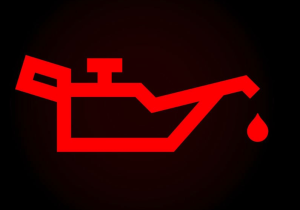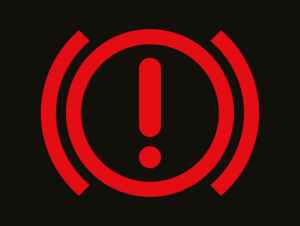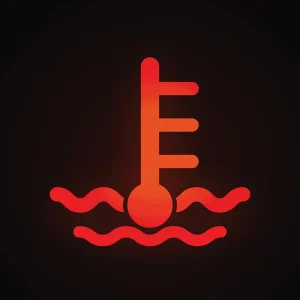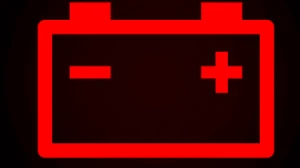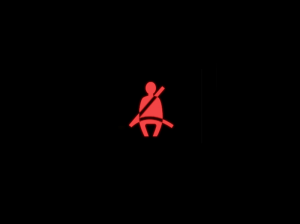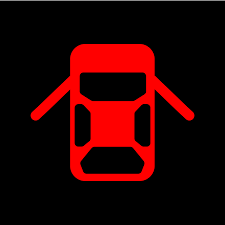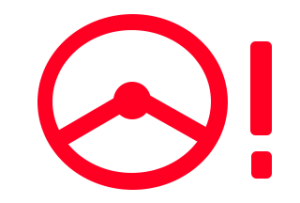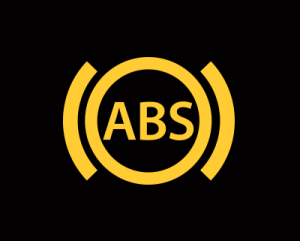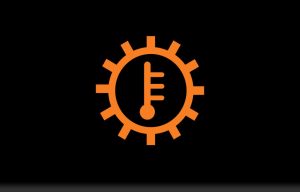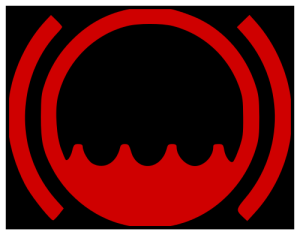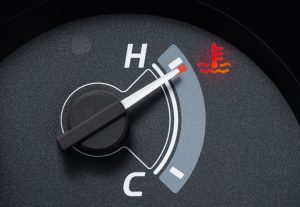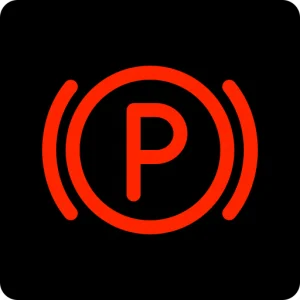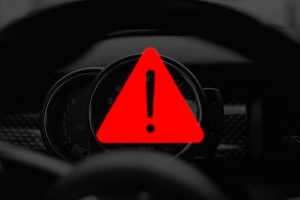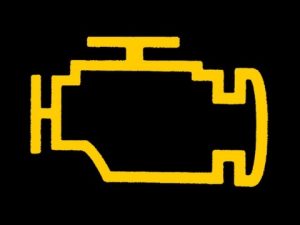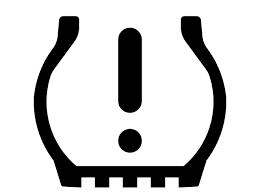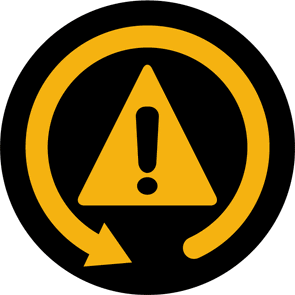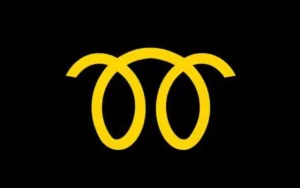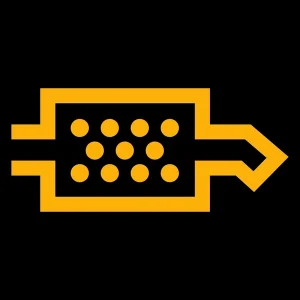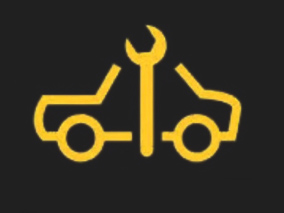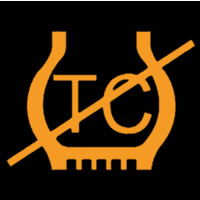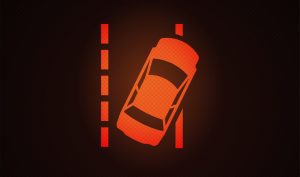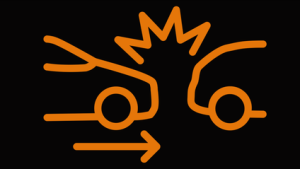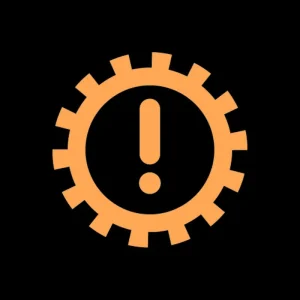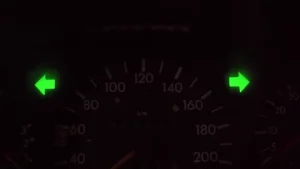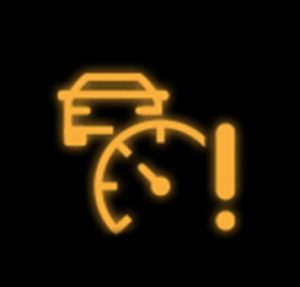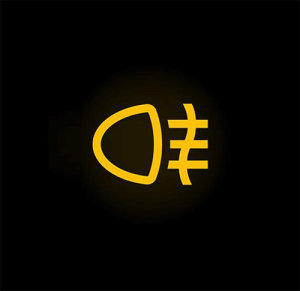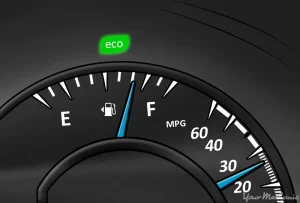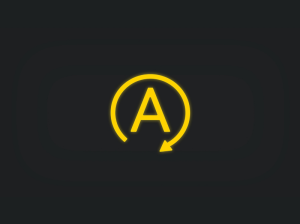Understanding dashboard warning lights on your Opel Astra is essential for safe driving, as they alert you to potential issues that could lead to breakdowns or accidents if ignored. Recognizing these lights helps with timely maintenance, preventing costly repairs and ensuring the vehicle runs efficiently. Always consult your owner’s manual or a mechanic for specific model variations.
Quick Navigation
Red Warning Lights (Stop Immediately)
Engine Oil Pressure
Low oil pressure can cause engine damage from lack of lubrication. Possible causes include low oil level or a faulty pump. Stop the car right away, check the oil, and add more if needed; do not drive until fixed.
Brake System Alert
Indicates a problem with the brakes, like low fluid or hydraulic failure. This reduces stopping power and risks safety. Pull over safely, check brake fluid, and call a mechanic immediately.
Coolant Temperature
Engine is overheating, often due to low coolant or a faulty thermostat. This can lead to severe damage. Stop the vehicle, let it cool, check coolant levels, and seek professional help before driving.
Battery Charge
The battery is not charging properly, possibly from a failing alternator or loose belt. This can cause the car to stall. Stop driving, check connections, and get it inspected at a service center.
Airbag Warning
Airbag system has a fault, meaning it may not deploy in a crash. Causes include sensor issues or wiring problems. Stop and have it checked by a professional to ensure safety features work.
Seatbelt Reminder
A seatbelt is not fastened, increasing injury risk in an accident. The light stays on until buckled. Fasten all seatbelts immediately for safety.
Door Ajar
A door, hood, or trunk is not fully closed, which can be unsafe at speed. Check and secure all doors before continuing to drive.
Power Steering Failure
Power steering assist is lost, making steering hard, especially at low speeds. Caused by fluid leak or pump failure. Stop safely and contact a service center.
ABS Warning
Anti-lock braking system is faulty, reducing control during hard braking. Possible sensor or module issue. Stop and have brakes inspected urgently.
Transmission Overheat
Transmission fluid is too hot, risking damage from friction. Often due to heavy load or low fluid. Pull over, let it cool, and check fluid; visit a mechanic.
Low Brake Fluid
Brake fluid level is low, which can lead to brake failure. Check for leaks and top up fluid; do not drive until resolved.
Engine Overheat
Similar to coolant light, signals high engine temperature. Stop immediately, turn off engine, and check for coolant leaks or fan issues.
Parking Brake Engaged
Parking brake is on while driving, causing wear or drag. Release the brake fully before proceeding.
Master Warning (Red)
General alert for serious issues like multiple system failures. Stop the car and diagnose the problem with professional help.
Yellow/Amber Warning Lights (Action Required Soon)
Check Engine
Engine or emissions system has a problem, like a faulty sensor or misfire. Performance may drop. Check for loose gas cap first, then visit a service center soon.
Tyre Pressure
One or more tires have low pressure, affecting handling and fuel use. Inflate tires to recommended levels and monitor; reset the system if needed.
ESP Warning
Electronic stability program is off or faulty, reducing traction control. Turn it back on if possible; get it serviced to restore stability.
Glow Plug
For diesel models, glow plugs are heating or there’s a fault. Engine may start hard in cold weather. Wait for light to go off before starting; service if it stays on.
DPF Alert
Diesel particulate filter is clogged with soot, needing regeneration. Drive at higher speeds to clear it, or visit a mechanic if it persists.
Service Vehicle Soon
General reminder for maintenance or minor fault detected. Check oil, filters, or schedule a routine service.
Low Fuel
Fuel level is critically low, risking running out. Refuel at the next station to avoid being stranded.
Traction Control
System is active or has a fault, helping with slippery roads. If faulty, have it checked to maintain grip.
Lane Departure
Warns if drifting out of lane without signaling. Adjust steering and ensure system is calibrated; service if malfunctioning.
Forward Collision
Alerts to potential crash ahead; system may apply brakes. Clean sensors and check for faults.
Washer Fluid Low
Windshield washer fluid is low, impairing visibility. Refill the reservoir as soon as possible.
Brake Pad Wear
Brake pads are worn thin, reducing stopping efficiency. Replace pads at a service center promptly.
Transmission Fault
Indicates an issue with the gearbox, like slipping or sensor error. Avoid hard driving and get it diagnosed soon.
Green Lights (Information Only)
Turn Signals
Indicates left or right turn signal is on. Light flashes until signal is canceled.
Cruise Control Active
Cruise control is set and maintaining speed. Adjust or deactivate as needed.
High Beam
High beam headlights are on for distant visibility. Dim for oncoming traffic to avoid blinding others.
Front Fog Lights
Front fog lights are activated for poor weather. Turn off when conditions improve.
Rear Fog Lights
Rear fog lights are on to alert following vehicles. Use only in heavy fog and switch off otherwise.
Eco Mode Active
Fuel-saving mode is enabled, optimizing engine for efficiency. No action; switch off for more power if desired.
Sidelights On
Parking or side lights are active. Ensures visibility without full headlights.
Descent Control
Helps maintain speed on steep downhill. Active when engaged; no further action.
Automatic Restart
Stop-start system is ready to restart engine after idle stop. Saves fuel; no action required.
When looking at Opel, make sure to check out our guides on models like the 1, 2, 3, and 4. Understanding dashboard warning lights is essential. Our expert reviews break down what each light means, highlighting common alerts for these models and what they could signal about underlying issues, so you’re never left guessing behind the wheel.

